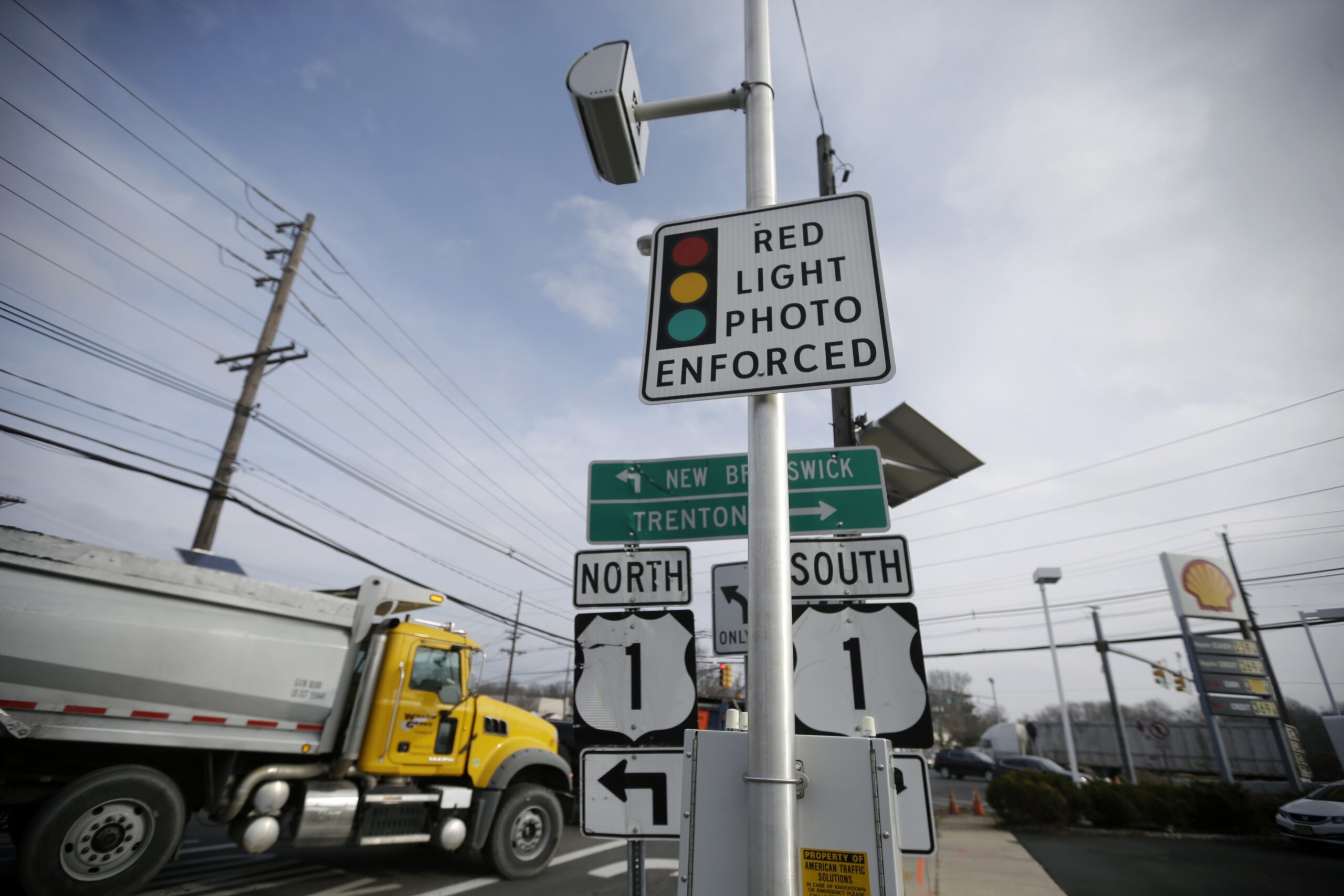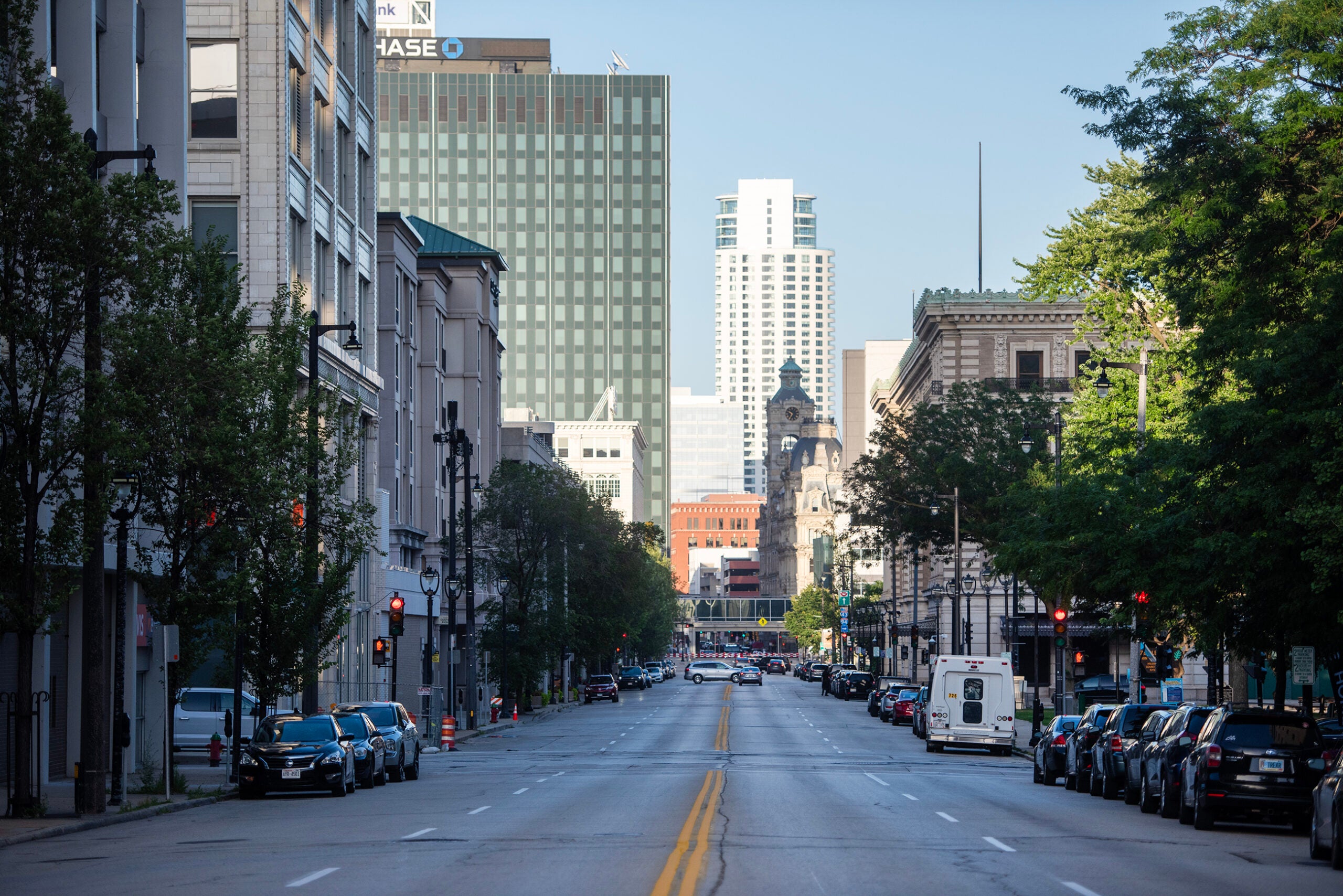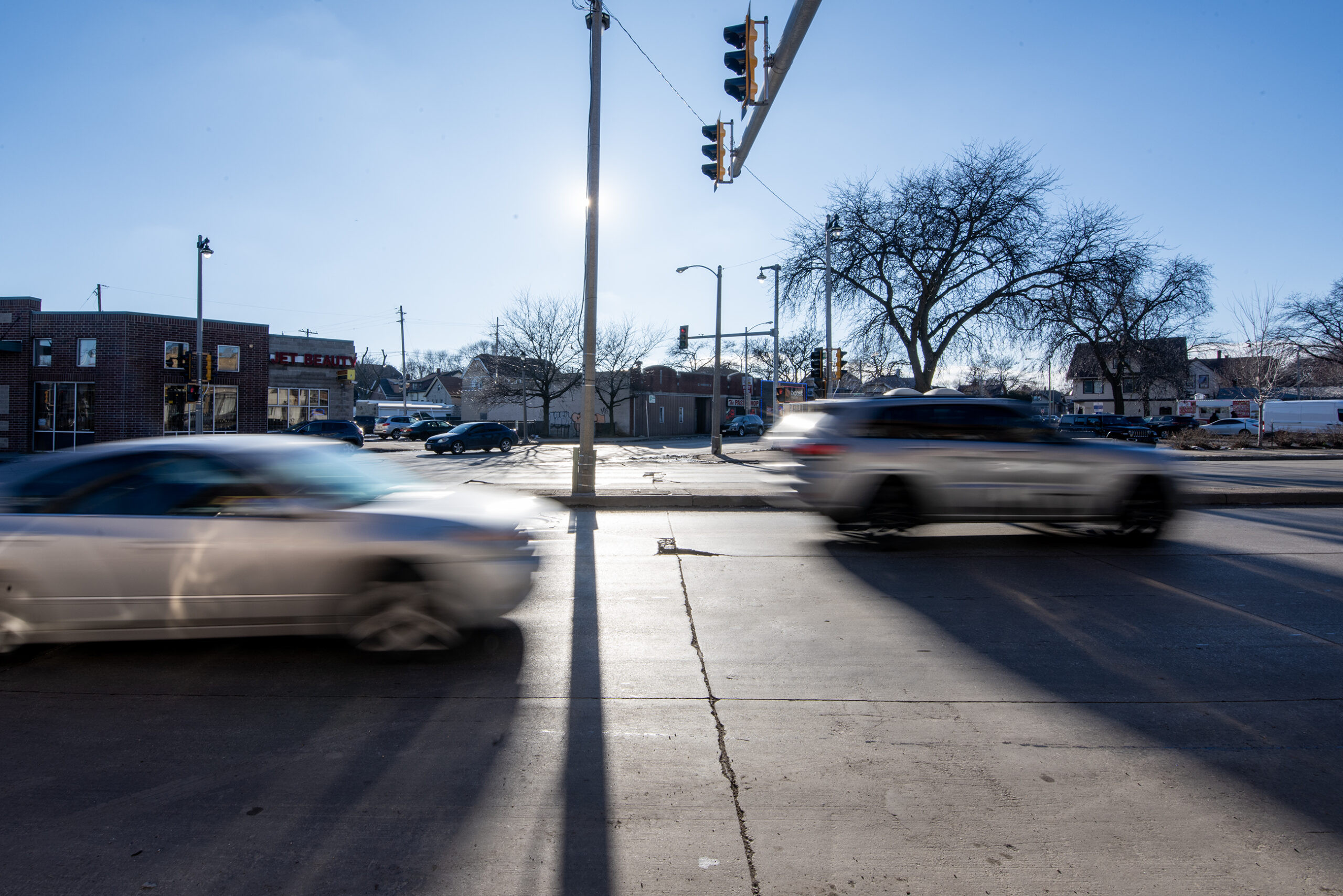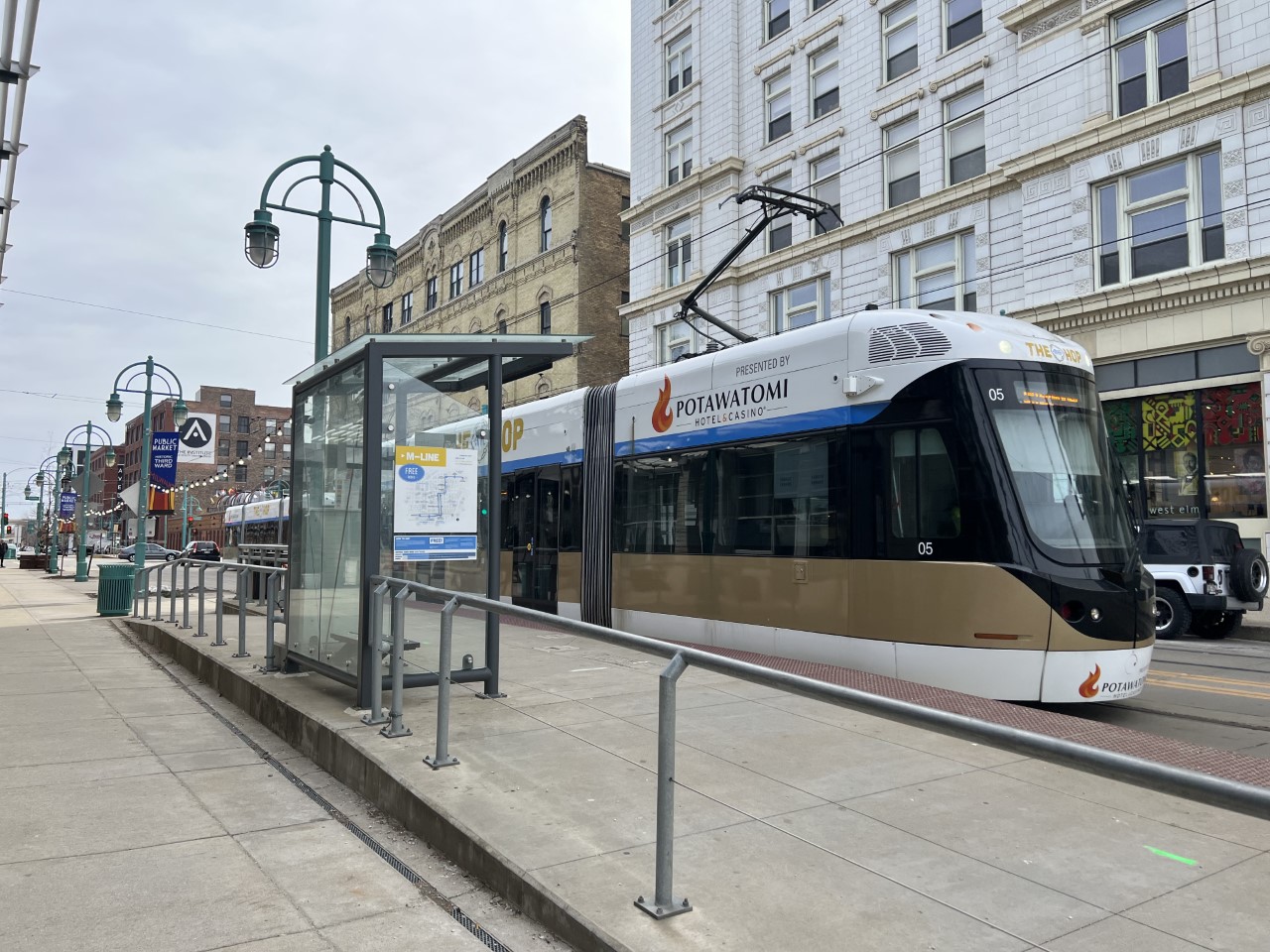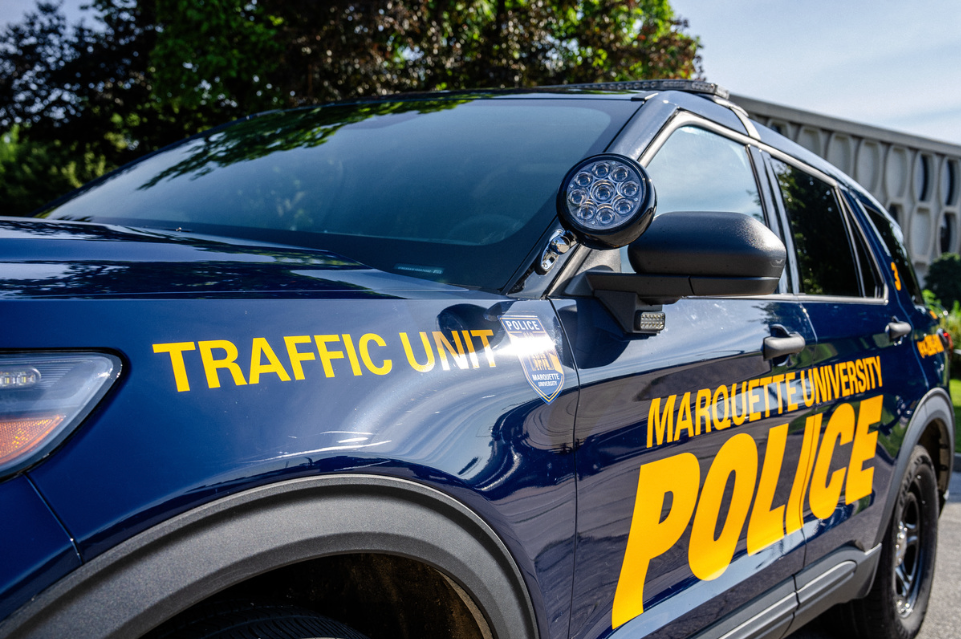Milwaukee officials are again urging Wisconsin lawmakers to change state law to allow the city to place red light and speed enforcement cameras throughout the city.
State law currently prohibits the use of the cameras, which snap photos of vehicles that run a red light or speed. But city officials say allowing them would help tackle reckless driving — an issue that has plagued Milwaukee for years.
During a press conference Friday, Milwaukee Mayor Cavalier Johnson said the cameras would be another tool to make the streets safer.
News with a little more humanity
WPR’s “Wisconsin Today” newsletter keeps you connected to the state you love without feeling overwhelmed. No paywall. No agenda. No corporate filter.
“Installing traffic safety cameras in the city of Milwaukee will save lives, as well as prevent unnecessary injury on our roadways here in the city,” Johnson said.
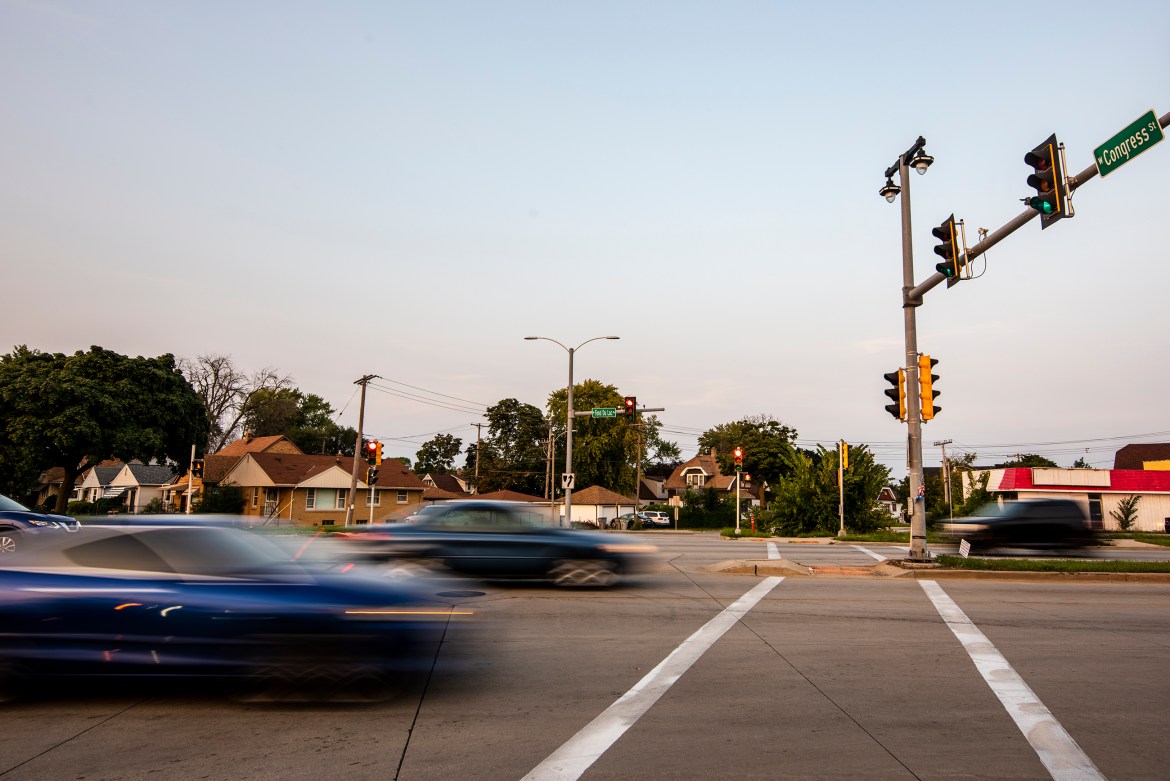
Jessica Wineberg, policy director for Milwaukee’s Vision Zero program, said the cameras would likely be placed at more dangerous intersections where serious and deadly accidents occur. Fines from citations would go toward paying for the cameras, while extra money collected could go to community programs and other prevention efforts like street safety projects.
“These aren’t about raising money or needlessly punishing people. They’re really about changing behavior so less people die on our roads,” Wineberg said.
City officials have called reckless driving a crisis and have taken a number of steps to tackle the problem.
The Milwaukee County Medical Examiner’s Office reported 88 motor vehicle deaths in 2022. According to the Wisconsin Traffic Operations and Safety Laboratory, 32 of those deaths involved pedestrians.
In 2013, there were just five pedestrian traffic deaths in Milwaukee County.
“When I talk to victim’s families, they are absolutely clear that we need new and innovative ways to change behavior,” Wineberg said.
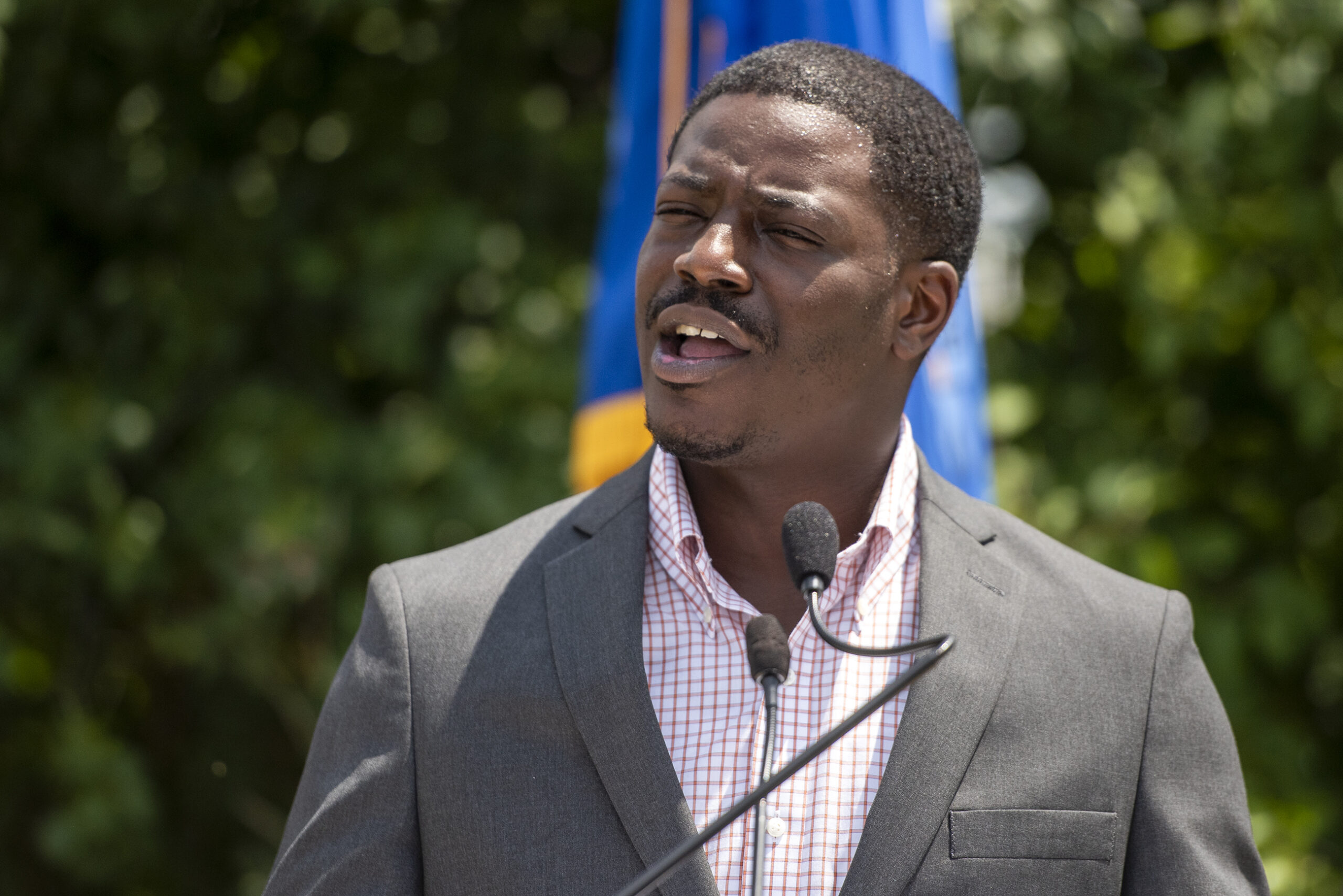
Milwaukee County Executive David Crowley has been pushing for the cameras for years. Supporters of the effort also say it can free up police officers to focus on other crimes.
“We have to provide our local officials the ability to enforce traffic laws and reduce reckless driving no matter if it’s here in the city of Milwaukee, across Milwaukee County or throughout this state,” Crowley said at the Friday press conference.
But this isn’t the first time Milwaukee leaders have asked the state to allow for the cameras. Past efforts have failed to gain enough support among lawmakers.
This time around, state Rep. Bob Donovan, R-Milwaukee, said he still doesn’t believe the effort has enough support in Wisconsin’s Republican-controlled Legislature. When asked about why he didn’t support allowing the cameras, Donovan said he’d rather the city look at other avenues to address the issue.
“I don’t think it’s going to solve the real problems that we’re faced with,” Donovan said.
Donovan said he believes a small segment of the community is responsible for a majority of the reckless driving issues Milwaukee is experiencing.
“I think until we crack down on that small group, you’re going to see the problem (reckless driving) continue,” he said.
But Milwaukee Alder Scott Spiker, who is in support of the cameras, said he wants the state to let the city use all available tools to fight the problem.
“What we need from the state … is an understanding that local control, the people who are closest to the people, should be crafting these solutions in a way that is specific to the challenges they’re facing,” Spiker said.
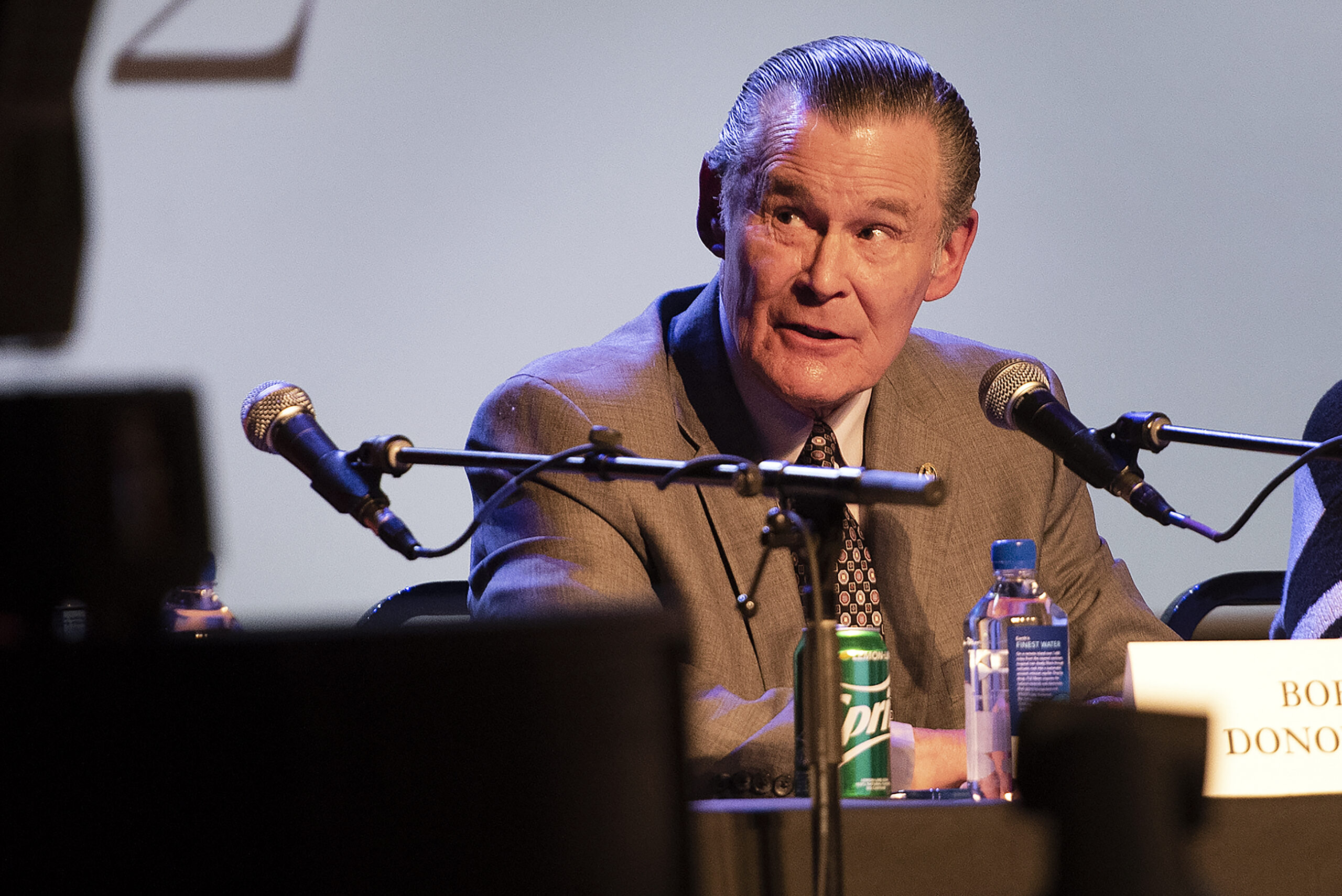
Automated traffic enforcement cameras are used in several other large cities across the nation, but reviews are mixed.
A 2018 study by Case Western Reserve University found red light cameras changed the types of accidents occurring, but not the frequency of accidents or injuries.
The U.S. Centers for Disease Control and Prevention found red light cameras led to more rear end crashes — which are lower impact crashes — and a reduction in right angle crashes, which are more dangerous.
A study from the Insurance Institute for Highway Safety found that traffic enforcement cameras reduced the fatal red light running crash rate by 21 percent and the rate of all types of fatal crashes at signalized intersections by 14 percent.
Studies in Washington, D.C. and Chicago revealed that tickets from automated enforcement cameras are paid disproportionately by people of color, according to an NPR report.
In response, Spiker said the issue of reckless driving is already “disproportionally effecting communities of color.”
“Again, this wouldn’t be a revenue-oriented project. It would be with safety at the forefront,” Spiker said.
Milwaukee officials and experts have said engineering, education and enforcement are the main ways to address the issue. Earlier this year, the city announced 45 new traffic safety projects, which include raised crosswalks, curb extensions or bump-outs and “full reconstruction projects” on certain streets.
Wisconsin Public Radio, © Copyright 2025, Board of Regents of the University of Wisconsin System and Wisconsin Educational Communications Board.

